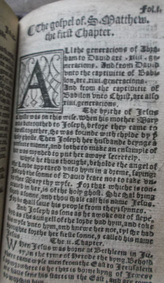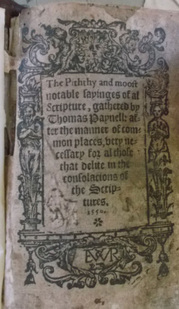- Home
- The Piththy 1550
- Tyndale NT 1534
- 1792 Large Folio British Family Bible
- BIBLE. Latin. Tremellius. 1593
- Rare Books Just In
- Rare Books
- Rare Bibles
- Paraphrase of Erasmus 1548
- The Self Interpreting Bible 1820 Folio
- Bible Videos
- Travel Books
- Theological Books & Religious Tracks
- Americana
- Rare Poetry Books
- Childrens Books
- Antiques & Collectables
- Ephemera
- Ephemera 2
- Science
- About
- Contact


